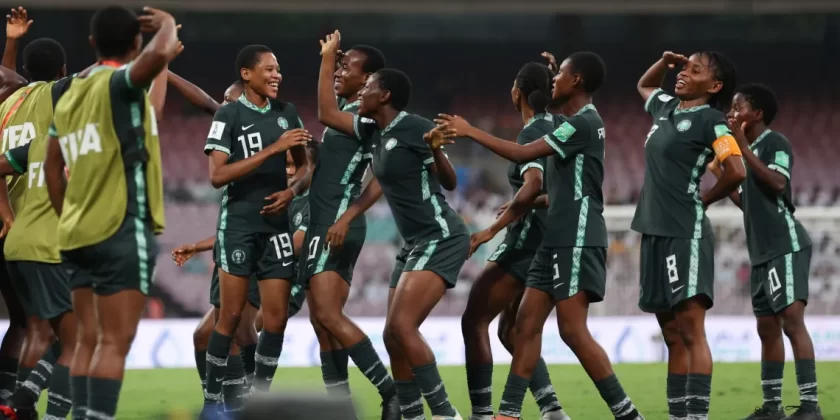Few stories in African football generate as much conversation as the state of the Nigerian league and the issue of player contracts. The struggles, hopes, and daily realities of the country’s footballers are all woven into a complex tapestry. From clubs facing difficult administrative decisions to the raw ambition of young talents inspired by legends, the league serves not only as a proving ground for athletes but also as a reflection of bigger systemic challenges in Nigerian football.
League structure and administrative hurdles
The administrative machinery behind the Nigerian league continues to define the course of clubs and players. Recent events have thrown a spotlight on governance and the enforcement of regulations. A telling example is the recent withdrawal of Galaxy Transport FC from Division One Group H2 in the Nationwide League One. The club was removed due to a violation of article 4.12(7) of NLO rules and regulations—a decision that led to a directive forbidding any club from honoring scheduled matches against them. While the details of the infringement remain discreet, this instance underscores the importance of strict adherence to league regulations and the far-reaching implications of administrative decisions on the club’s reputation and its players’ careers.
This type of administrative withdrawal, while necessary to uphold standards, can be disruptive for the entire group. It leaves other clubs adjusting their schedules and recalibrating strategies. More importantly, it imparts a harsh lesson to clubs nationwide: compliance is non-negotiable in an ecosystem yearning for growth and global relevance.
The player contract conundrum
No discussion about the Nigerian league is complete without addressing one of its most pressing issues—player contracts. Despite Nigeria’s rich footballing heritage, there persists an astonishing absence of formal agreements safeguarding players’ professional lives. Coaches and stakeholders have openly criticized this pattern, urging the Nigeria Football Federation (NFF) to take decisive action. Without written contracts, footballers remain vulnerable, lacking the financial security and professional legitimacy seen in more established leagues around the world.
For players, this means uncertainty reigns supreme. They pour energy, passion, and years of development into their careers, often without the safety net of legal protection or guaranteed remuneration. The lack of contracts impacts not only their livelihood but also affects morale, performance, and long-term development. When an aspiring star’s future hangs on an unwritten promise, the entire ecosystem risks losing its brightest talents to more stable foreign leagues or even to alternative professions altogether.
Dreams and determination among rising stars
Against this challenging backdrop, the Nigerian league still manages to inspire dreams in the hearts of countless young players. Patrick Adeoluwanimi Akhidenor-Solanke, a 14-year-old prodigy at Provazios Sports Academy of Lagos, perfectly encapsulates the hope that sustains Nigerian football. Patrick’s dreams are simple yet profound: he wants to emulate national hero Jay Jay Okocha and take Nigerian football to greater heights on the world stage.
“Since I was little, football has always been my passion,” Patrick said in a candid conversation. The young attacker’s drive is fuelled by icons both global and local, but it is the spirit and determination of Okocha—a player who not only dazzled on the pitch but also carried the hopes of an entire nation—that continues to motivate him. Patrick’s dedication to daily training and the resilience shown by countless youths across the country highlight an unwavering belief in the power of football to create opportunities and bridge divides.
Mighty Jets and the pursuit of on-field excellence
The fruits of hard work, and sometimes much-needed moments of joy, are found in results like the recent triumph of Mighty Jets International FC. Their commanding 2-0 victory over NAF Rockets provided not just three points, but also a surge of confidence and a testament to preparation and teamwork. Such wins encapsulate what the league can still offer: competition, growth, and a shot at sporting pride against the odds.
Every match serves as a microcosm of the league’s bigger narrative—a struggle against adversity, fueled by ambition and a desire for recognition. While systemic issues like administrative disorder and the absence of contracts continue to pose hurdles, on-field successes breathe hope into players and fans, reinforcing the league’s relevance as a battleground of dreams and determination.
Women’s game and international ambitions
It is also vital to spotlight the women’s game with Nigeria’s U17 girls, nicknamed the Flamingos, embarking on another international campaign. Their flight to South Africa for the first leg of the FIFA U17 Women’s World Cup qualifying fixture speaks to the growing opportunities for female footballers. Under coach Bankole Olowookere, 19 players, including talents like Harmony Chidi and Chisom Nwachukwu, will don the national colors, seeking to uphold Nigeria’s proud tradition on the continental stage.
The structure and oversight of competitions, including the selection of match officials by the Confederation of African Football, underscore efforts to ensure fairness and transparency. CAF’s appointment of Kenyan referees and officials reflects a push towards standardized governance, bolstering the integrity of international fixtures and driving home the message that progress is possible through sound management.
A call for reform and collective responsibility
Looking at the bigger picture, the Nigerian league is at a crossroads. There is an urgent need for stakeholders—from administrators and the NFF to club owners and coaches—to finalize comprehensive reforms. Introducing standardized player contracts is not just a practical necessity; it is a moral imperative if Nigeria hopes to unlock its footballing potential and retain emerging stars. The current gap between ambition and reality serves as a wake-up call for everyone involved in nurturing talent and building sustainable clubs.
The example set by the Flamingos and by rising academies like Provazios offers a blueprint. There is hope and momentum, but lasting change depends on tireless advocacy, meticulous groundwork, and above all, a recognition that football’s greatest asset lies in its people. Coaches calling out for NFF intervention are not simply airing grievances; they are demanding the foundational security that drives both individual careers and national dreams.
Conclusion the future of the Nigerian league
The evolving story of the Nigerian league is rife with both obstacles and opportunity. Administrative challenges, the stark reality of contractless players, and the persistent drive of young footballers all collide in this pulsating drama. Yet within the uncertainty lies a fierce determination—a belief that with stronger governance, better support systems, and the celebration of emerging talent, the league can rise again to inspire a generation. As journalists, fans, and stakeholders watch this space, one message resonates: every setback is a lesson, and every triumph is a promise of the greatness that still lies ahead for Nigerian football.





